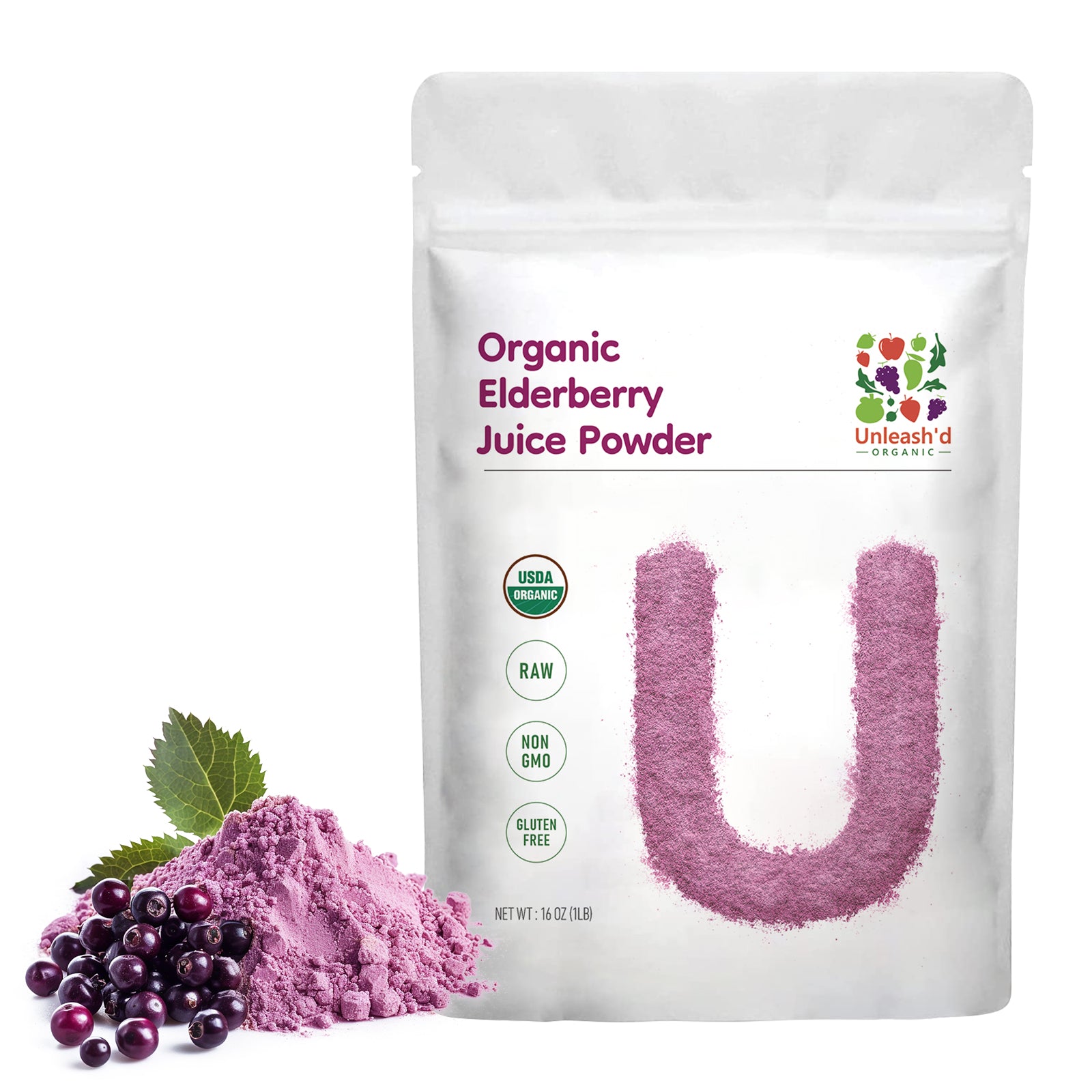
Many cultures have relied on elderberry to address respiratory concerns, with modern research supporting its benefits for lung health.
-
Multiple studies, including a meta-analysis and a 2021 systematic review, show that elderberry supplements can reduce symptoms and duration of upper respiratory tract infections.
-
Elderberry contains anthocyanins and vitamin C, which help lower oxidative stress, ease inflammation, and support immune function.
-
Experts highlight elderberry’s ability to treat symptoms rather than prevent illness, reflecting its traditional use.
Processed elderberry juice powder offers a safe and effective way to harness these benefits, especially for those seeking to manage oxidative stress and support lung health. Product quality and scientific evidence remain vital when selecting elderberry supplements.
Key Takeaways
-
Elderberry juice powder offers strong antioxidant and anti-inflammatory benefits that help protect lung cells and support respiratory health.
-
Scientific studies show elderberry can reduce the duration and severity of cold and flu symptoms by boosting the immune system.
-
Using high-quality elderberry products ensures safety and effectiveness, so choose reputable brands with proper testing and certifications.
-
People should consult healthcare professionals before using elderberry supplements, especially children, pregnant women, and those with health conditions.
-
Elderberry juice powder is easy to add to daily routines by mixing it into drinks like tea or smoothies to help manage oxidative stress and support lung wellness.
Elderberry Juice Powder Overview
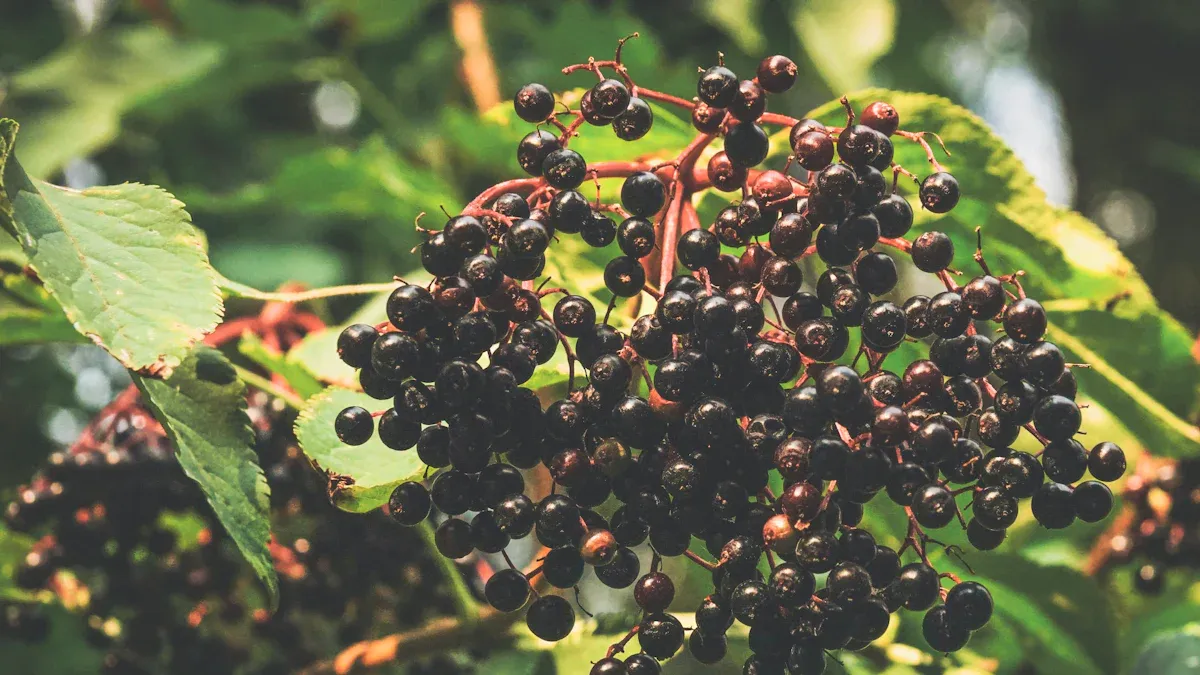
What Is Elderberry Juice Powder?
Elderberry juice powder is a concentrated supplement made by dehydrating the juice of ripe elderberries. Manufacturers typically use Sambucus plants, especially European black elderberries, to produce this powder. The process preserves the fruit’s natural nutrients and active compounds, resulting in a fine, easy-to-mix powder. Elderberry juice powder stands out for its versatility. People can add it to water, smoothies, or tea, making it a convenient option for daily wellness routines.
Unleash'd Organic Organic Elderberry Juice Powder 16 oz exemplifies premium elderberry products. This powder uses 100% organic elderberries sourced from USDA certified organic farms. Customers appreciate its smooth texture and mild flavor, which blend seamlessly into drinks without clumping. The product’s organic certification and rigorous testing ensure purity and potency.
The market offers elderberry supplements in several forms. The table below summarizes the main options and their sources:
|
Main Forms of Elderberry Supplements |
Sources of Elderberry Juice Powder |
|---|---|
|
Powder |
Sambucus plants (genus Elderberry) |
|
Capsules |
European black elderberries (organic, non-GMO) |
|
Tablets |
Elderberries grown in North America and Europe |
|
Soft gels |
Elderberries grown in the United States |
|
Liquid |
N/A |
Key Nutrients and Compounds
Elderberry juice powder delivers a rich profile of nutrients and bioactive compounds. The primary active ingredient is anthocyanins, which give elderberries their deep purple color and provide strong antioxidant effects. Elderberry extract powders often standardize anthocyanin content to ensure consistent potency. In addition to anthocyanins, elderberry juice powder contains flavonoids and vitamin C. These compounds support immune health, help reduce oxidative stress, and may benefit respiratory function.
-
Anthocyanins: Powerful antioxidants that protect cells from damage.
-
Flavonoids: Support immune response and contribute to antiviral activity.
-
Vitamin C: Essential for immune system function and overall wellness.
Elderberry products retain these nutrients after dehydration, making them a reliable source of natural health support. Elderberry extract and juice powder both offer these benefits, with powder form providing ease of use and versatility.
Elderberry and Lung Health
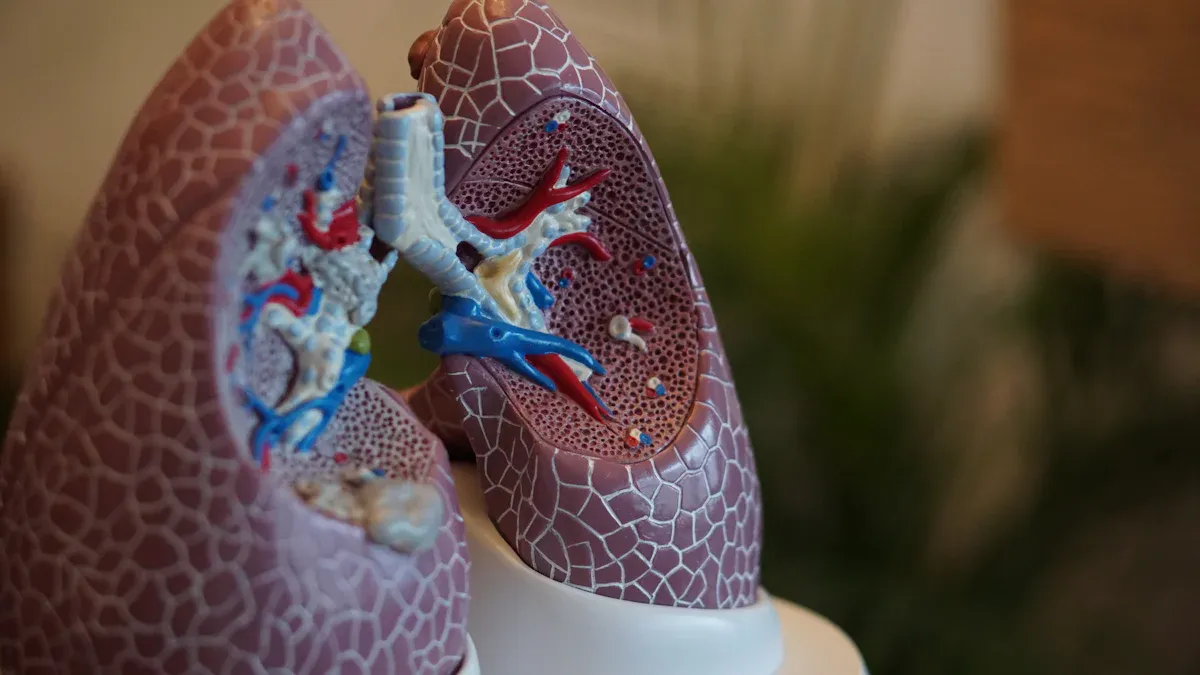
Traditional Uses
Elderberry has a long-standing reputation as a natural remedy for respiratory wellness. For centuries, people across Europe, North America, and ancient civilizations like Egypt and Greece turned to elderberry for its health effects on the lungs and respiratory system. Native Americans and European herbalists often referred to elderberry as the “medicine chest of the country people.” They used elderberry preparations to address sinus congestion, sore throat, and common cold symptoms. The flowers and fruits served as expectorants and anti-inflammatory agents, supporting easier breathing and improved lung function.
Traditional herbal blends, such as Elderberry Lung Support formulas, combined elderberry with other botanicals to nourish the lungs and ease respiratory congestion. These remedies aimed to protect the lungs from environmental stressors and support immune health. Elderberry’s rich content of anthocyanins and flavonoids provided antioxidant protection, helping to reduce oxidative stress in the respiratory tract. Over time, elderberry became a staple in syrups, teas, and lozenges for managing coughs and congestion. Practitioners valued its ability to soothe respiratory mucosa and support the body’s natural defenses.
Note: While elderberry has a strong safety record in traditional use, raw or unripe elderberries can be toxic. Commercially prepared elderberry products offer a safe alternative for those seeking respiratory support.
Modern Research
Recent scientific studies have explored elderberry’s health effects on respiratory symptoms, lung function, and inflammation. Clinical trials and meta-analyses show that elderberry supplementation can reduce the duration and severity of upper respiratory symptoms, such as those caused by influenza and the common cold. For example, a meta-analysis of randomized controlled trials found that elderberry significantly shortened symptom duration, regardless of flu vaccination status. Patients with influenza who took elderberry recovered up to three days faster than those on placebo. These findings highlight elderberry’s potential to ease respiratory discomfort and support faster recovery.
Modern research also investigates how elderberry addresses oxidative stress and inflammation in the lungs. Elderberry’s anthocyanins and polysaccharides help regulate pro-inflammatory cytokines, which play a key role in respiratory illnesses. In vitro studies demonstrate that elderberry extracts inhibit influenza viruses and improve symptoms more rapidly than placebo. Elderberry’s antioxidant properties protect lung cells from oxidative stress, while its immunomodulatory effects help balance the body’s response to infection. Ex vivo studies indicate that elderberry influences inflammatory markers without overstimulating the immune system, supporting its safety profile.
Researchers have introduced the concept of the gut-lung axis, suggesting that elderberry’s anthocyanins may help maintain lung function by influencing gut bacteria. This connection further supports elderberry’s role in respiratory wellness. While most studies focus on upper respiratory tract infections rather than chronic respiratory disorders, the evidence points to elderberry’s promise in supporting lung health and reducing oxidative stress during viral illnesses.
-
Elderberry’s antiviral effects stem from its ability to modulate cytokine production, including TNF-alpha and interleukins.
-
Elderberry-containing products have shown efficacy comparable to antiviral drugs like oseltamivir, but with fewer side effects.
-
No evidence links elderberry to immune overstimulation, making it a safe option for most individuals.
Ongoing research continues to clarify elderberry’s health effects on lung function, inflammation, and oxidative stress. Scientists recommend further high-quality studies to confirm these benefits and expand understanding of elderberry’s role in respiratory health.
How It Works
Antioxidant Effects
Elderberry juice powder delivers a concentrated source of antioxidants that help protect lung tissue from oxidative stress. The powder contains flavonoids such as quercetin and rutin, which support lung function in individuals with asthma and chronic obstructive pulmonary disease. Quercetin shows promise in aiding epithelial regeneration and reducing allergic reactions in the lungs. Elderberry also provides protocatechuic and chlorogenic acids, which help neutralize free radicals and reduce cellular damage. These compounds work together to maintain respiratory health and limit the impact of oxidative stress on lung cells. Regular use of elderberry juice powder may help the body defend against environmental pollutants and airborne irritants that contribute to oxidative stress.
Elderberry’s antioxidant profile stands out among natural supplements. Experts note that these compounds play a vital role in reducing oxidative stress, which is a major factor in respiratory illness and lung inflammation.
Anti-Inflammatory Actions
Elderberry juice powder demonstrates significant anti-inflammatory properties. Scientific studies show that elderberry extract down-regulates proinflammatory genes such as IL-1β, IL-6, TNF-α, and COX-2. The powder reduces secretion of inflammatory mediators, including IL-6 and prostaglandin E2, in activated immune cells. Elderberry also controls excessive nitric oxide production, which can worsen inflammation in lung tissue. The bioactive compounds peonidin-3-sambubioside and peonidin-3-glucoside remain effective after digestion, continuing to mediate anti-inflammatory activity. By diminishing reactive oxygen species generation, elderberry helps limit oxidative stress and supports lung health. These anti-inflammatory mechanisms contribute to the overall health effects of elderberry juice powder, making it a valuable addition to respiratory wellness routines.
Immune Support
Elderberry juice powder supports immune health and helps the body respond to respiratory infections. Studies report that elderberry supplements shorten the duration of common illnesses such as the flu. Participants in clinical trials recovered from flu symptoms in about two days when taking elderberry, compared to six days for those on placebo. Elderberry extracts reduce the severity of cold and flu symptoms and promote a healthy gut microbiome, which influences immune and respiratory health. The powder stimulates cytokines like IL-6, IL-8, and TNF, enhancing the immune response against viruses. Elderberry’s flavonoids modulate immune cell function and gene expression, while acid polysaccharides may boost immune function through macrophage activation.
|
Immune System Effect |
Description |
Supporting Details |
|---|---|---|
|
Cytokine Stimulation |
Elderberry stimulates cytokines, enhancing immune response against viruses. |
Increases IL-6, IL-8, TNF expression for immunomodulation. |
|
Direct Antiviral Effect |
Blocks viral glycoproteins and inhibits influenza virus. |
Stronger inhibition in late stage of viral cycle. |
|
Flavonoid Content |
Modulates immune and inflammatory cell function. |
Affects gene expression and cytokine release. |
|
Acid Polysaccharides |
Boosts immune function via macrophage stimulation. |
Contributes to immune enhancement. |
|
Clinical Effects |
Shortens duration and severity of respiratory illnesses. |
Faster recovery times in clinical trials. |
Elderberry juice powder offers a multifaceted approach to lung health, combining antioxidant, anti-inflammatory, and immune-supporting properties. These health effects help reduce oxidative stress, support immune health, and promote overall respiratory wellness.
Research Evidence
Human Studies
Researchers have explored the effects of elderberry on respiratory health in several human studies. Most clinical trials focus on upper respiratory symptoms, such as those caused by influenza or the common cold. Participants who consumed elderberry supplements often reported shorter illness duration and milder symptoms. These studies suggest that elderberry may help the body manage oxidative stress during viral infections. However, few trials have measured direct outcomes related to lung health or lung function. Most available data highlight improvements in immune response and reductions in oxidative stress, which can indirectly support lung tissue. Scientists continue to call for more targeted research that examines how elderberry affects oxidative stress in the lungs specifically.
Laboratory and Animal Research
Laboratory and animal studies provide important insights into how elderberry may benefit lung health and reduce oxidative stress:
-
In a mouse study, elderberry juice stimulated the immune system to fight influenza A virus and increased antibody production.
-
Cell culture experiments showed that elderberry extract inhibited both influenza A and B viruses, as well as bacteria linked to respiratory infections.
-
These findings point to elderberry’s antiviral and immune-stimulating properties, which may help the body control oxidative stress in lung tissue.
Researchers observed that elderberry’s active compounds can limit oxidative stress by neutralizing free radicals and supporting immune cells. These effects may protect lung cells from damage during infection or exposure to environmental irritants.
Limitations
Current research on elderberry juice powder and lung health faces several challenges:
-
Few large, targeted randomized controlled trials exist for elderberry and lung health.
-
Data on optimal dosage, delivery forms, and moderating effects remain limited.
-
Researchers have not clarified how elderberry affects different populations, such as men, women, or children.
-
Product reliability can suffer due to adulteration and lack of supply chain transparency.
-
Some studies use poor-quality elderberry products with fillers, which reduces confidence in results.
-
Uncertainty remains about which parts of the elderberry plant provide the most immune benefits.
-
The bioavailability of elderberry’s active ingredients needs further investigation.
-
Most studies focus on upper respiratory symptoms and immune support, not direct lung health outcomes or oxidative stress in the lungs.
Note: Scientists agree that more rigorous research is needed to confirm how elderberry juice powder influences oxidative stress and lung health in humans.
Safety and Side Effects
Common Reactions
Elderberry juice powder is generally safe when processed and consumed as directed. Most people tolerate it well, but mild side effects can occur.
-
Nausea, vomiting, stomach cramps, and diarrhea sometimes appear after use.
-
Some individuals report a runny nose or mild gastrointestinal upset.
-
Consuming uncooked or unripe elderberry parts may cause more severe symptoms, including dizziness, weakness, numbness, and stupor.
-
Serious reactions such as ongoing vomiting, severe diarrhea, or confusion require medical attention.
Processed elderberry products remove toxic compounds found in raw fruit, leaves, and stems. This step helps reduce the risk of adverse effects. People who experience stomach problems or other symptoms should stop using the supplement and consult a healthcare provider.
Note: Elderberry juice powder supports lung health and helps manage oxidative stress, but users must follow recommended guidelines to avoid unwanted reactions.
Who Should Avoid It
Certain groups should avoid elderberry juice powder due to potential risks.
-
Children under five years old should not use elderberry supplements.
-
Pregnant and breastfeeding women are advised against elderberry use because safety data is lacking.
-
Individuals allergic to elder pollen may react adversely to elderberry products.
-
People with diabetes, lupus, rheumatoid arthritis, or multiple sclerosis should consult a doctor before use.
-
Those undergoing chemotherapy or taking immunosuppressants, diuretics, or laxatives need medical advice before starting elderberry.
-
Anyone taking medications should check for possible interactions.
Raw elderberry fruit, flowers, and leaves contain cyanide-producing substances that can cause poisoning. Only processed elderberry products are considered safe for consumption.
Tip: Always choose reputable brands and consult a healthcare professional before adding elderberry to your routine, especially if you have underlying health conditions or take medications.
Use in Children
Safety considerations for children require special attention.
-
Pediatricians do not recommend elderberry supplements for children under five due to limited research and unknown long-term effects.
-
Raw elderberries and plant parts are toxic and must never be given to children.
-
Cooked elderberries can be introduced as food from around six months, but only after proper boiling and simmering to remove toxins.
-
Elderberry syrups and extracts are not FDA regulated and lack proven dosing guidelines for children.
-
Honey in elderberry syrups is unsafe for infants under twelve months.
Children metabolize substances differently than adults, so safety in adults does not guarantee safety in children. Always consult a qualified healthcare provider before giving elderberry products to children. Monitoring for symptoms such as nausea, vomiting, or signs of oxidative stress is important.
Pediatric guidance ensures safe use and helps prevent complications related to oxidative stress and toxicity.
Practical Tips
How to Use Elderberry Juice Powder
Individuals seeking to support lung health and manage oxidative stress can easily incorporate elderberry juice powder into their daily routines. Many prefer to mix one teaspoon of the powder with a cup of hot water, steeping for three minutes to create a soothing elderberry tea. Some choose to sweeten the beverage with honey. Others add the powder to smoothies or juices, blending it with other superfoods to enhance flavor and reduce acidity. For those who value convenience, elderberry supplements are available in capsules, gummies, or syrups, offering a simple way to maintain consistent intake. These methods help users benefit from the antioxidant properties of elderberry while addressing oxidative stress.
Choosing Quality Products
Selecting high-quality elderberry supplements is essential for safety and effectiveness. Reputable brands use mature elderberries grown under controlled conditions and test raw materials for moisture, microbial load, pesticides, and heavy metals. Advanced processing techniques, such as spray drying with soy protein isolate, preserve the bioactive compounds that combat oxidative stress. Manufacturers concentrate and standardize extracts to ensure consistent potency. Third-party testing and organic certification further guarantee purity, confirming that products are free from contaminants and accurately dosed. Companies that follow good manufacturing practices and disclose their quality assurance protocols provide additional confidence. Choosing elderberry juice powder from such sources maximizes health benefits and reduces the risk of exposure to harmful substances.
When to Consult a Doctor
Consulting a healthcare professional before starting elderberry supplements is important, especially for certain groups. Pregnant or breastfeeding women should seek medical advice due to limited safety data. Children under five should avoid elderberry, as research on safety remains insufficient. Individuals with autoimmune diseases or those taking immunosuppressant medications must consult a provider, since elderberry may stimulate the immune system and affect medication effectiveness. Personalized guidance from a registered dietitian, pharmacist, or healthcare provider ensures safe use and helps manage oxidative stress without unintended complications.
-
Scientific studies confirm that elderberry juice powder may help reduce oxidative stress and support immune responses, especially during respiratory infections.
-
Product quality and evidence-based use remain essential for safety and effectiveness.
-
Individuals should consult healthcare professionals before starting supplementation, monitor for sensitivity, and follow dosage guidelines.
-
Storing powder in cool, dry conditions preserves its ability to help manage oxidative stress.
Choosing reputable products and seeking professional advice ensures safe and effective use for respiratory wellness.
FAQ
Can elderberry juice powder help with chronic lung conditions?
Elderberry juice powder may support overall respiratory wellness. However, it does not replace prescribed treatments for chronic lung diseases. Individuals with asthma or COPD should consult a healthcare provider before using elderberry supplements.
How should elderberry juice powder be stored?
Store elderberry juice powder in a cool, dry place. Keep the container tightly sealed to protect the powder from moisture and light. Proper storage helps maintain potency and freshness.
Is elderberry juice powder safe to use daily?
Most healthy adults can use elderberry juice powder daily. Follow the manufacturer’s recommended dosage. Individuals with underlying health conditions or those taking medications should seek medical advice before regular use.
What is the best way to mix elderberry juice powder?
-
Add one teaspoon of powder to water, tea, or smoothies.
-
Stir or blend until fully dissolved.
-
Adjust the amount to taste.
Tip: Mixing with warm liquids helps the powder dissolve more easily.

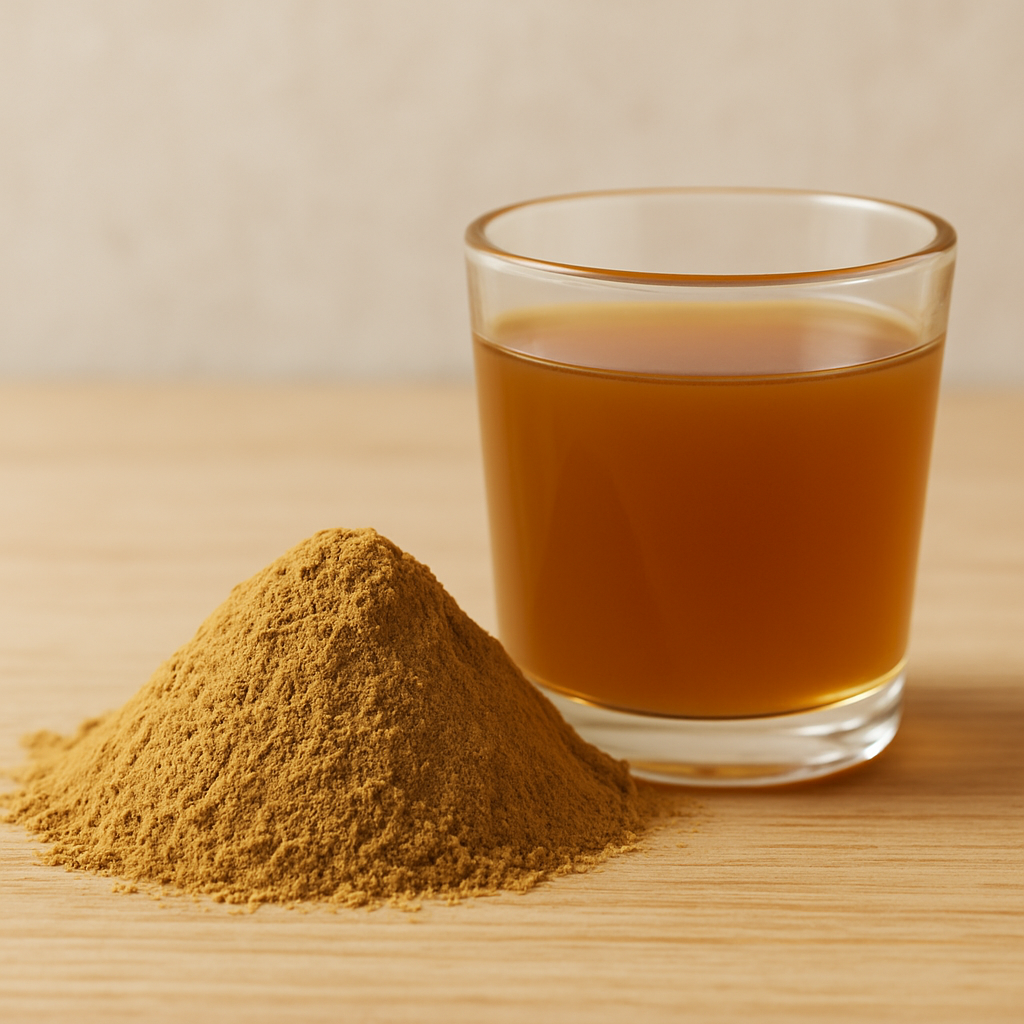
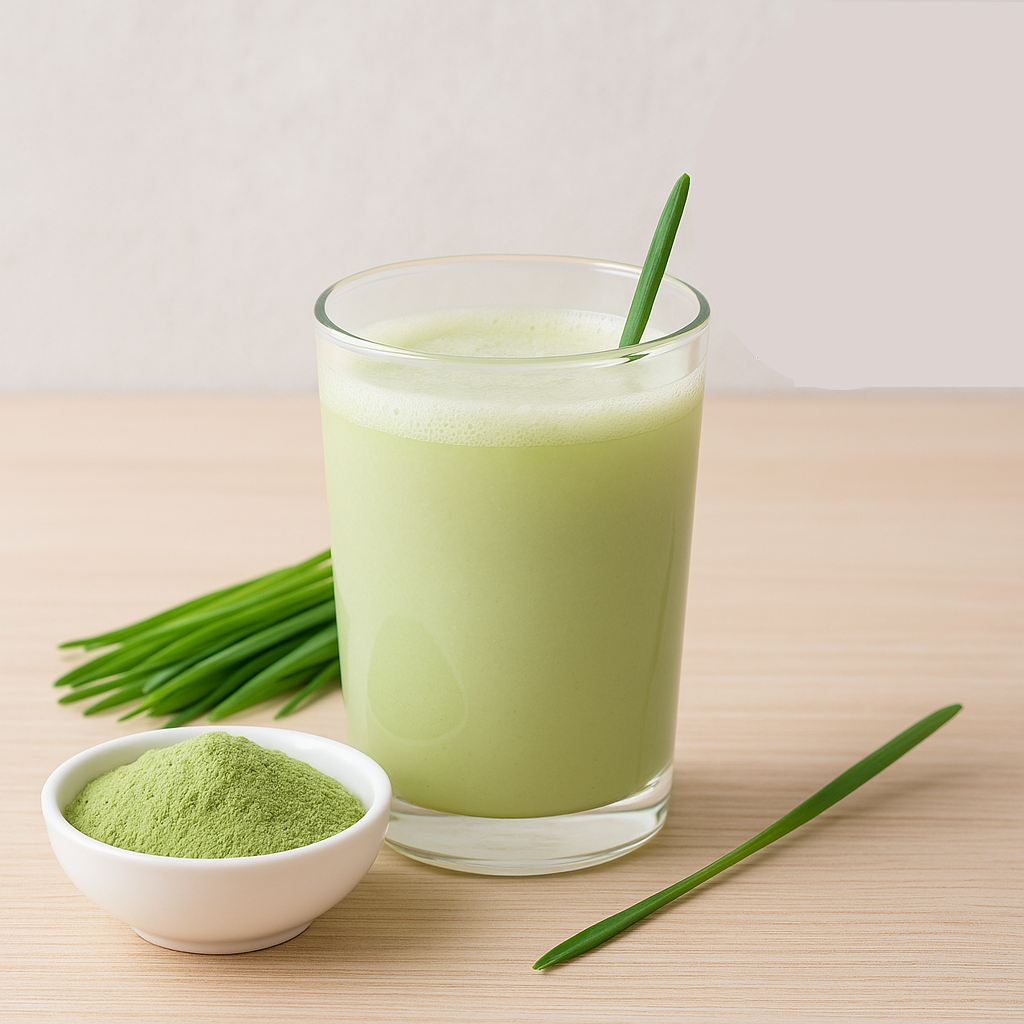
Leave a comment
This site is protected by hCaptcha and the hCaptcha Privacy Policy and Terms of Service apply.